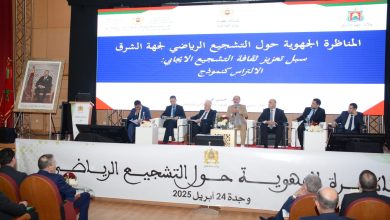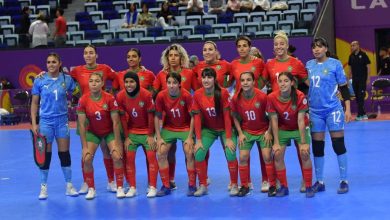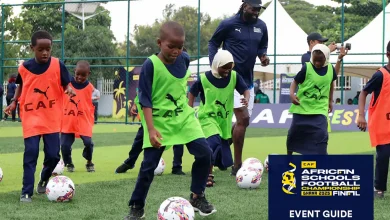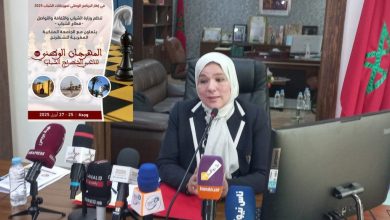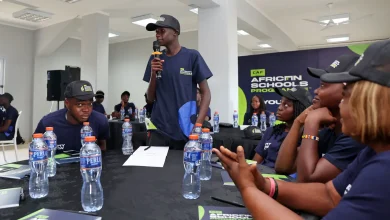The Director General of the National Social Support Agency presents Morocco’s experience in direct social assistance during the World Bank and IMF spring meetings
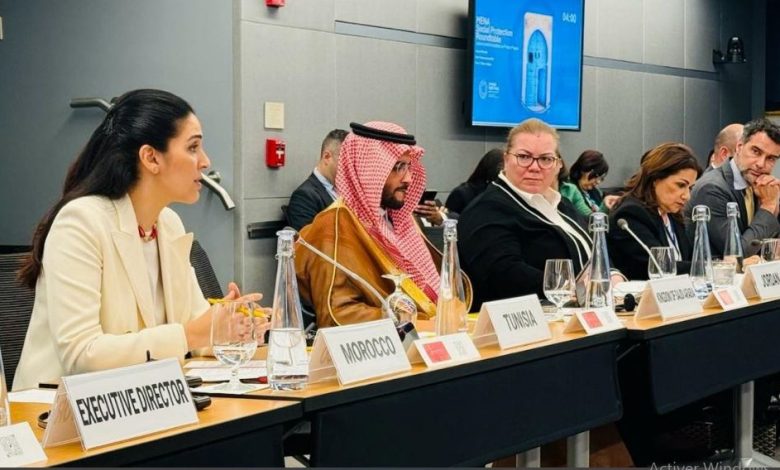
This article was automatically translated from HIBAPRESS, the Arabic version:
Hibapress-Rabat
-The kingdom now recognized as an active contributor to good international practices in terms of social protection
-The budget of the direct social assistance program in Morocco, among the highest in the world in part of GDP (2%), is entirely covered by the state budget
-The program aims for sustainable transformation by encouraging income -generating activities of the National Agency for Social Support (ANSS), Ms. Wafâa Jemali, underlined the centrality of social protection in the development trajectory of the Kingdom of Morocco, under the impetus and leadership of His Majesty the King who erected this site at the top of the priorities both for executive and legislative powers. In this regard, she said that the objective of “social protection for all” is today a reality and a success in Morocco.
During his intervention, on the occasion of a round table entitled, “social protection in the MENA region: lessons and innovations for the protection of individuals”, held Wednesday April 23 in Washington, as part of the spring meetings of the World Bank and the International Monetary Fund, Ms. Jemali presented the Moroccan experience in terms of social protection, which results from an ambitious decision of the kingdom of undertaking a radical reform Rapid and unprecedented design, in accordance with high royal orientations that have drawn clear vision and strategy for this purpose.
The invitation of the World Bank and the IMF addressed to Morocco to share its experience, indicates that the Kingdom is now recognized as an active contributor to good international practices in terms of social protection. In this context, Ms. Jemali has expressed the consideration of the Ans for the support offered by the World Bank to this royal project, by providing technical support and expertise on the subject.
The director general of the ANSS has revealed that the annual budget of the direct social assistance program has reached nearly 25 billion dirhams (2.5 billion dollars) and is expected to increase to 30 billion dirhams ($ 3 billion), or 2% of GDP, representing one of the highest levels in the world. Ms. Jemali stressed that this envelope is mobilized by the state budget, thanks to solidarity contributions, the compensation reform and the overhaul of certain social programs.
The director general of the ANSS indicated that the Moroccan model of direct social assistance is not limited to direct direct aid, but aims to carry out a sustainable social transformation, by encouraging income -generating activities. This model, is based, in collaboration with the national institutions concerned, each according to its prerogatives, on the access of beneficiaries to training and employment opportunities, on support for education through financial aids to schooling and specific programs in favor of children, as well as the strengthening of family health by promoting medical examinations for the mother and children, nutrition and the fight against economic precariousness.
Jemali explained that to achieve the objectives set for this program a series of practical measures have been taken, aimed at ensuring the precise targeting of beneficiary families. This was materialized by the implementation of the unified social register, a mechanism to identify families eligible for direct aid, by means of a rating system taking into account the income of the beneficiaries, their housing conditions and their standard of living.
In this context, in order to strengthen the impact of the program, the ANSS undertakes to be part of this orientation by ensuring direct monitoring and communication with beneficiaries, in accordance with local needs in terms of employment, training, education and health. Ms. Jemali also indicated that the Agency plans to further improve the targeting of beneficiary groups by relying on precise data and to support targeted populations through incentives adapted to territorial realities, thus strengthening the impact of the program while promoting financial inclusion in order to increase the effectiveness of aid.
The director general of the ANSS also stressed that the generalization of social support through the kingdom constitutes a major step towards the consolidation of the social state in Morocco. The manager insists on the importance of articulating this site with employment policies to stimulate economic growth and guarantee sustainability. “Social protection is not limited to simple financial support,” said the director general of the ANSS, “she is rather an essential lever to ensure global and sustainable development for the benefit of future generations”.
The director general of the ANSS explains that regional antennas will be set up within the framework of this orientation where social workers from the territories concerned will exercise. These antennas, specifies LAresponsable, will make it possible to better understand local realities and territorial needs in order to better understand expectations, with a view to strengthening the economic empowerment of beneficiaries. In this context, Ms. Jemali mentioned the implementation of several measures intended to increase this empowerment, in particular concerning training and access to the labor market, with an emphasis on support for the professional opportunities of young people and women by means of devices adapted to the needs of those concerned.
Note that the number of beneficiaries of the direct social assistance program is currently around 4 million families, or more than 12 million people, including 5.6 million children from birth to the eve of their 21 years and more than a million people over the age of 60.

